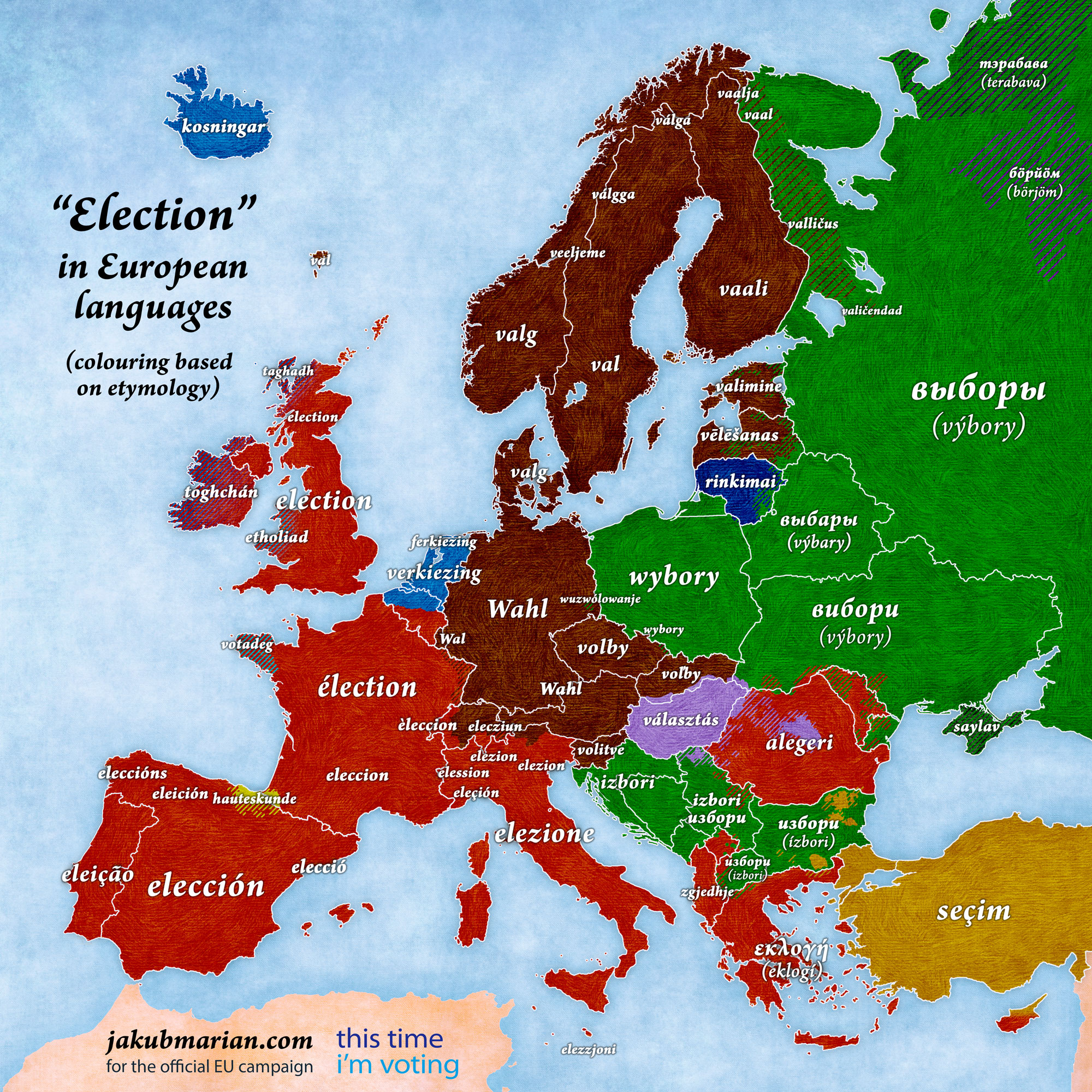The English word “election”, French élection, Spanish elección, etc., come from the Latin word ēlectiōn, which in turn comes from ēligō (“I choose”), which is a contraction of ex-legō (literally “from-choose”), from Proto-Indo-European *leǵ- “to gather, collect”. This form makes it clearer how it is related to Greek eklogí, Romanian alegeri, and Albanian zgjedhje. This is the most common etymology on the map below:

A note is in order here. In some languages, only the singular form can be used (i.e. “election”), in some both can be used (i.e. both “election” and “elections”), and in many languages, only the plural (i.e. “elections”) is used when referring to the process of electing a person who will hold a public office. I put the singular form on the map in the former two cases and the plural form in the third case.
German Wahl, Swedish val, Czech volby, and similar expressions in other languages, are derived from Proto-Indo-European *welh₁- “to choose; to want”. Finnish vaali and similar words in neighbouring languages are Germanic loanwords. Surprisingly, Hungarian választás comes from válik “to become”, which is a native Hungarian (Uralic word). It is not related to the seemingly similar Germanic and Slavic expressions.
Polish wybory, Russian выборы, Croatian izbori and other similar expressions in Slavic languages are derived from Proto-Slavic *bьrati “to pick up; to take” (which is also related to the English verb “bear”).
Irish toghchán, Scottish Gaelic taghadh, Dutch verkiezing, and Icelandic kosningar all come from Proto-Indo-European *ǵews- (“to taste, try, choose”), which is, by the way, also the origin of the English word “choose”.
Lithuanian rinkimai is likely derived from Proto-Balto-Slavic *ránkāˀ “hand”, via the verb rinkti “gather”. Welsh etholiad comes from the verb ethol “to elect, choose”, which ultimately comes from Proto-Indo-European *dʰayl- (to part). Breton votadeg is borrowed from Latin votum or French voter (related to the English word “vote”).
 Tip: Are you a non-native English speaker? I have just finished creating a
Tip: Are you a non-native English speaker? I have just finished creating a  Web App
Web App
